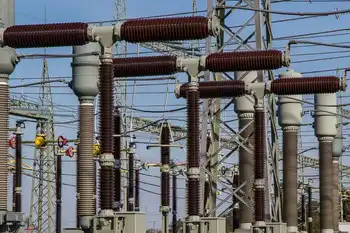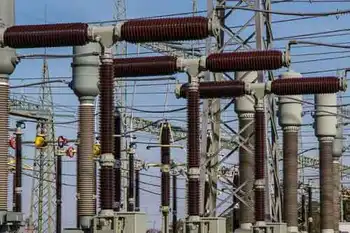Lawmakers seek to change funding requirements for power plants
JEFFERSON CITY, MISSOURI - Missouri lawmakers have proposed changing a state law that bars investor-owned utilities from charging customers for building new power plants until the facilities come online.
Sen. Delbert Scott filed a bill that would allow utilities to charge for the financing expenses of building plants using nuclear, new coal technologies and renewable energy sources such as wind and solar. In the House, Rep. Ed Emery said he plans to file a similar bill within the next 10 days.
The debate over the best way to pay for new power plants has been triggered by St. Louis-based AmerenUE's application to build a second mid-Missouri nuclear reactor. It pits consumer activists and environmentalists, who believe customers shouldn't be billed until new plants come online, against utilities, who say they can't afford to build the billion-dollar facilities without recouping costs as the plants are built.
Scott, R-Lowry City, sponsored the bill along with six other senators. He told reporters that it wouldn't require electricity customers to pay for steel, concrete and other construction charges for partially completed plants. And he said it would give state utility regulators authority to decide whether to pass through the financing costs.
Once approved by regulators, the legislation would let utilities ask quarterly for rate increases to cover additional capital costs, and it would restrict the authority of courts to hear legal challenges over the process.
Emery, R-Lamar, said consumers will be protected if utilities can use energy sources they desire.
"The benefit to the consumer is the long-term cost and reliability advantages of a nuclear plant," Emery said.
But a consumer advocate said the proposed changes gives utilities a big boost while doing little to help consumers. John Coffman, who represents Missouri AARP and the Consumers Council of Missouri, said utility stockholders — not customers — should bear the risk of building new power plants.
"It was a huge thumb on the scales in favor of monopolies and against consumers," he said.
Coffman said it would be fairer to subtract what consumers already paid during the construction process from future electric rates.
The Nuclear Regulatory Commission in mid-December accepted an 8,000 page license application from Ameren for the proposed Callaway 2 reactor near Fulton. The permit request comes amid an increase in nuclear interest as utilities look for ways to produce electricity while reducing carbon dioxide emissions.
Federal nuclear regulators received 12 applications in 2008 and five requests in 2007. Before then, the last application came in 1979.
Ameren contends it cannot afford building a second nuclear reactor without changes to a 1976 Missouri law that blocks investor-owned utilities from charging for construction costs until the project is completed.
Missourians approved the restriction on that year's ballot by a roughly two-thirds majority. The law still lets utilities recover debt and financing from their customers but not until after a new plant is producing power.
Ameren Corp., the parent company for AmerenUE, is worth about $9 billion, and Callaway 2 is estimated to cost about that much.
The Missouri Energy Development Association, a trade-group for the state's investor-owned utilities, including Ameren, praised lawmakers' efforts.
Warren Wood, the group's director, said that consumers save money by paying during construction rather than receiving a jolt to their electrical rates when construction is completed.
Both Scott and Emery said they are convinced the only way Missouri can get Ameren to build a second nuclear reactor is to repeal some of the restrictions on the construction charges.
Scott said he thinks voters three decades ago were worried about expanding nuclear power and not how to pay for new power plants.
"The time that voters passed that was a time of anti-nuclear energy. It wasn't necessarily a time of anti-financing and rate-structure," Scott said. "That was an anti-nuke vote, and those days are over."
Related News

Tories 'taking the heart out of Manitoba Hydro' by promoting subsidiaries, scrapping low-cost pledges: NDP
WINNIPEG - The board of Manitoba Hydro is being reminded it can divvy up some of the utility's work to subsidiaries — which the NDP is decrying as a step toward privatization.
A sentence seemingly granting the board permission to create subsidiaries was included in the board's new terms of reference, which the NDP raised during question period Wednesday.
The document also eliminated references asking Manitoba Hydro to keep electricity rates low and supply power in an environmentally-friendly fashion.
NDP raises spectre of Manitoba Hydro's privatization with new CEO
"They're essentially taking the heart out of Manitoba Hydro," NDP leader Wab Kinew said.
Cheap,…




